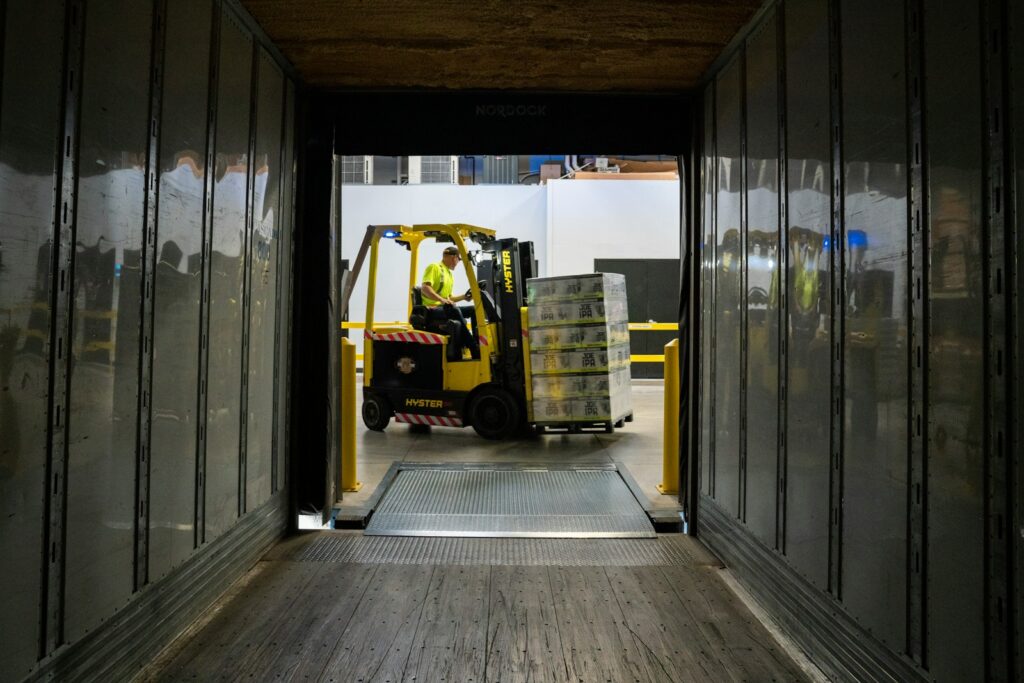
When it comes to acquiring forklifts for your business, a crucial decision lies in choosing between used and new equipment. Both options come with their own set of advantages and drawbacks. This article will delve into the pros and cons of buying used forklifts in Toronto and elsewhere compared with new forklifts, aiding businesses in making an informed decision that aligns with their operational needs and budget constraints.
Cost Considerations
Used Forklifts:
One of the primary attractions of used forklifts is their cost-effectiveness. Purchasing a pre-owned forklift often comes at a significantly lower price compared to a new one. This can be particularly advantageous for small businesses or those operating on tight budgets, allowing them to acquire essential equipment without breaking the bank.
New Forklifts:
While new forklifts come with the allure of the latest technology and modern features, they also come with a hefty price tag. Investing in a new forklift requires a more substantial financial commitment, which may be a deterrent for businesses with limited capital.
Condition and Reliability
Used Forklifts:
One concern often associated with buying used equipment is the uncertainty regarding its condition. However, reputable dealers thoroughly inspect and refurbish used forklifts, ensuring they meet safety and performance standards. While a used forklift may not have the latest features, it can still provide reliable service if properly maintained.
New Forklifts:
New forklifts boast the latest advancements in technology, design, and safety features. Businesses that prioritize cutting-edge capabilities and a warranty for peace of mind may find new forklifts more appealing. The reliability of new equipment is generally higher, reducing the likelihood of unexpected breakdowns.
Customization and Features
Used Forklifts:
When opting for a used forklift, businesses may have limited choices in terms of customization and the latest features. However, for those with basic operational needs, a well-maintained used forklift can still fulfill essential functions without the added expense of unnecessary features.
New Forklifts:
New forklifts often come with a range of customizable options and advanced features. Businesses requiring specific configurations or advanced technology, such as telemetry systems for inventory tracking, may find the new equipment better suited to their requirements.
Depreciation and Resale Value
Used Forklifts:
Used forklifts typically experience slower depreciation compared to new ones. While they have already undergone their initial depreciation hit, a well-maintained used forklift can retain its value reasonably well, providing a more stable resale value.
New Forklifts:
New forklifts, on the other hand, tend to experience rapid depreciation in the initial years. This can be a significant consideration for businesses looking at long-term costs and potential resale value.
Environmental Impact
Used Forklifts:
Choosing a used forklift aligns with environmentally conscious practices, as it extends the lifespan of existing equipment and reduces the demand for new manufacturing.
New Forklifts:
New forklifts may come with energy-efficient features, but the manufacturing process and disposal of older equipment contribute to environmental impact. Businesses aiming for sustainability may weigh this factor in their decision-making.
Conclusion
The decision to buy used or new forklifts depends on the specific needs and priorities of the business. While cost savings may favor used forklifts, businesses requiring the latest technology and features may find the investment in new equipment worthwhile. Careful consideration of these pros and cons ensures that businesses make a decision that aligns with both their operational requirements and financial constraints.













